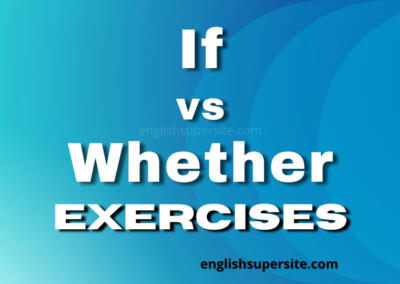
Confusing Words
Confusing Words: Clarify Commonly Misused Terms
Confusing words are terms that often look or sound similar but have different meanings. Examples include “affect” vs. “effect”, “there” vs. “their,” and “complement” vs. “compliment.” These words can create confusion in writing and speaking. Learning the differences between them helps you avoid mistakes and communicate more clearly.
Mastering confusing words makes your English more precise and professional, whether in writing or conversation.

If vs Whether - Exercises - Improve your written skills by practicing these exercises. Complete the sentences ...

Learn when and how to use the prepositions IN, ON and AT. Understand the differences and why you should use them ...
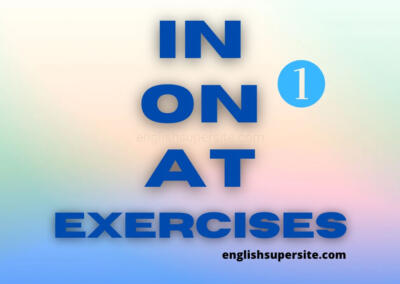
EXERCISES 1 - IN - ON - AT - Practice using the prepositions IN, ON and AT. Complete the sentences below with the ...
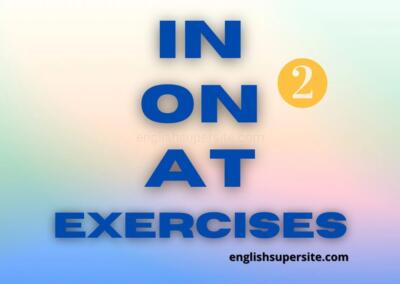
EXERCISES 2 - IN - ON - AT - Practice using the prepositions IN, ON and AT. Complete the sentences below with the ...
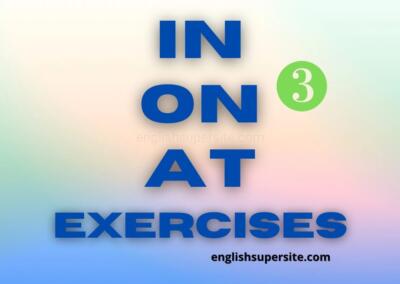
IN - ON - AT - Exercises 3 - Quiz - Practice using the prepositions IN, ON and AT. Complete the sentences below ...
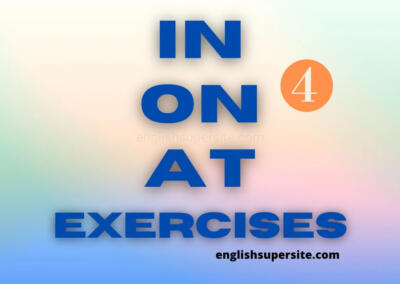
IN - ON - AT - Exercises 4 - Quiz - Practice using the prepositions IN, ON and AT. Complete the sentences below ...
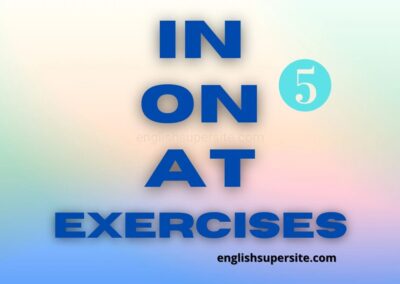
IN - ON - AT - Exercises 5 - Quiz - Practice using the prepositions IN, ON and AT. Complete the sentences below ...
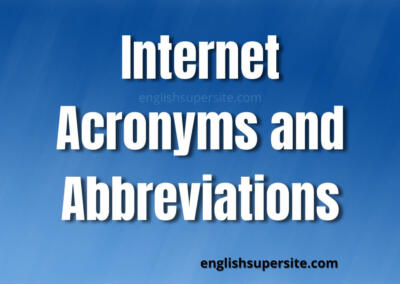
Internet Acronyms and Abbreviations - Acronyms and Abbreviations used to communicate all over the Internet!
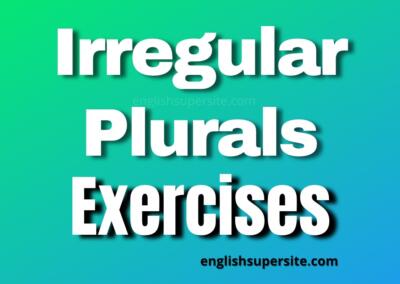
Irregular Plurals - ExercisesExercises with Irregular Plurals.Irregular Plurals - Exercises: Improve your ...

Irregular PluralsIrregular Plural or Mutating PluralWhat is an Irregular Plural?They are irregular ...
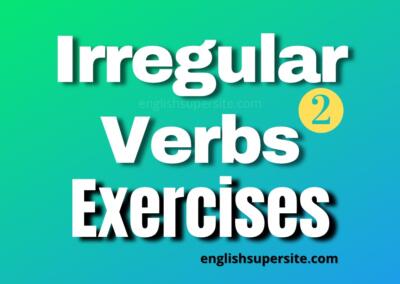
Irregular Verbs - Exercises 2Practice these exercises with Irregular Verbs:Irregular Verbs - Exercises 2: ...
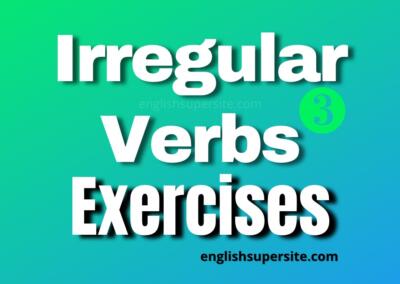
Irregular Verbs - Exercises 3 - Irregular Verbs - Quiz 3. An easy and fun way to learn and practice Irregular ...
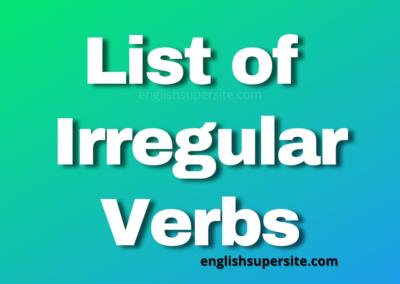
List of Irregular Verbs | English Super SiteList of Irregular VerbsQuick ...
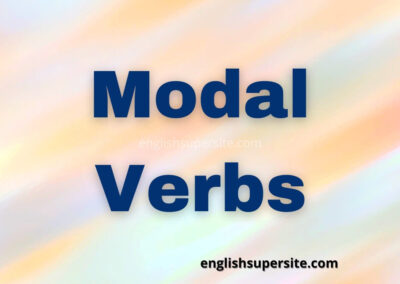
Modal verbs are auxiliary verbs in English that are used to express the speaker's attitude or opinion about the ...

Much, many, little, and few. Learn when and how to use these words in your daily life. Never make a mistake again ...
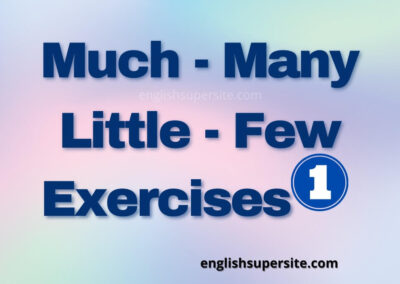
Much - Many - Little - Few - Exercises 1 - Quiz - Learn when to use much or many, little or few. Score in Real-Time.
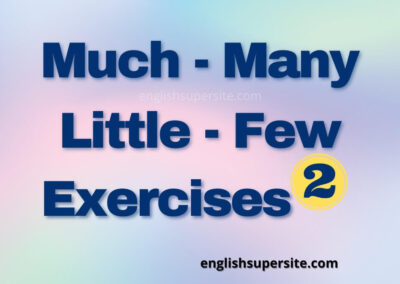
Much - Many - Little - Few - Exercises 2 - Quiz - Learn when to use much or many, little or few. Score in Real-Time.

Other, The Other and Another - Learn when to use other, the other and another. Understand the differences, study ...
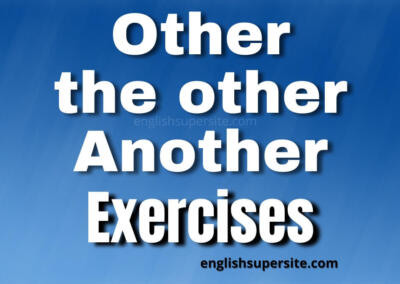
Exercises with other, the other and another! Other, the other and another - Quiz. Other or Another? Other or the ...
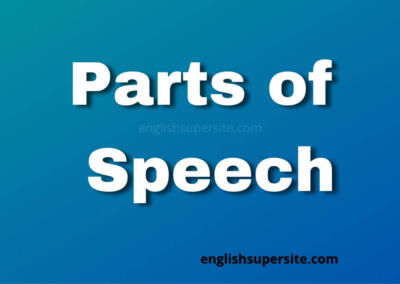
Learn here the basics of English Grammar. Parts of Speech are nouns, pronouns, adjectives, verbs, adverbs, ...
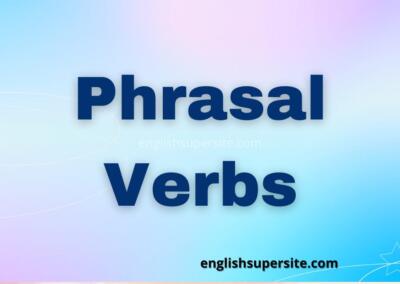
Extremely popular in spoken English, phrasal verbs can be confusing sometimes due to their definitions that are ...
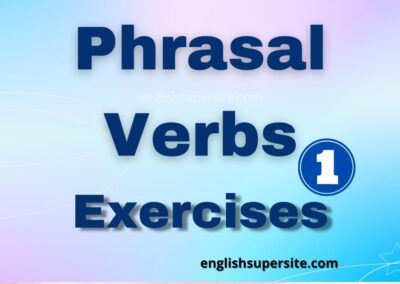
Phrasal Verbs - Exercises 1 - Quiz - Check your progress in REAL TIME. These exercises can help you evaluate your ...
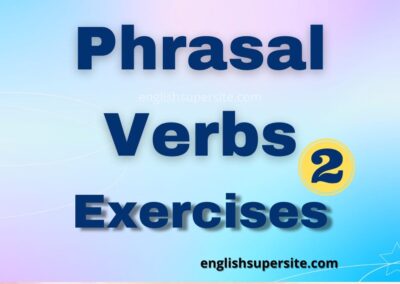
Phrasal Verbs - Exercises 2 - Quiz - Check your progress in REAL TIME. These exercises can help you evaluate your ...
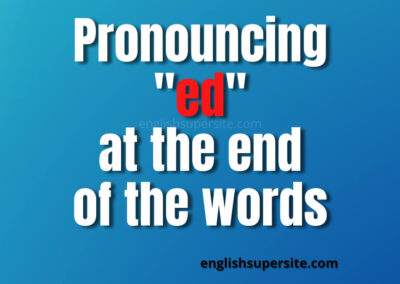
ED at the end of words in English.Pronouncing "ed" at the end of words | English Super SitePronouncing ...
Related Posts
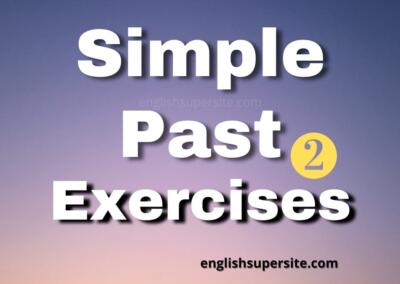
Simple Past - Exercises 2 - Practice exercises with Simple Past. Improve your English skills with exercises and quizzes.
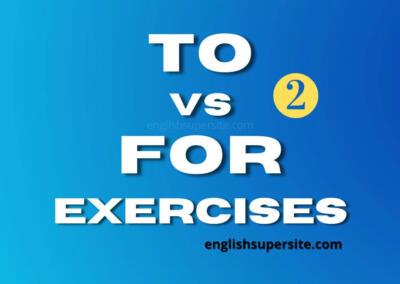
EXERCISES 2 - TO vs FOR Practice the following exercises with TO and FOR: Complete the sentences with TO or FOR. ...

The Past Perfect is a verb tense we use to express that an action has happened in the past and it has a connection ...


